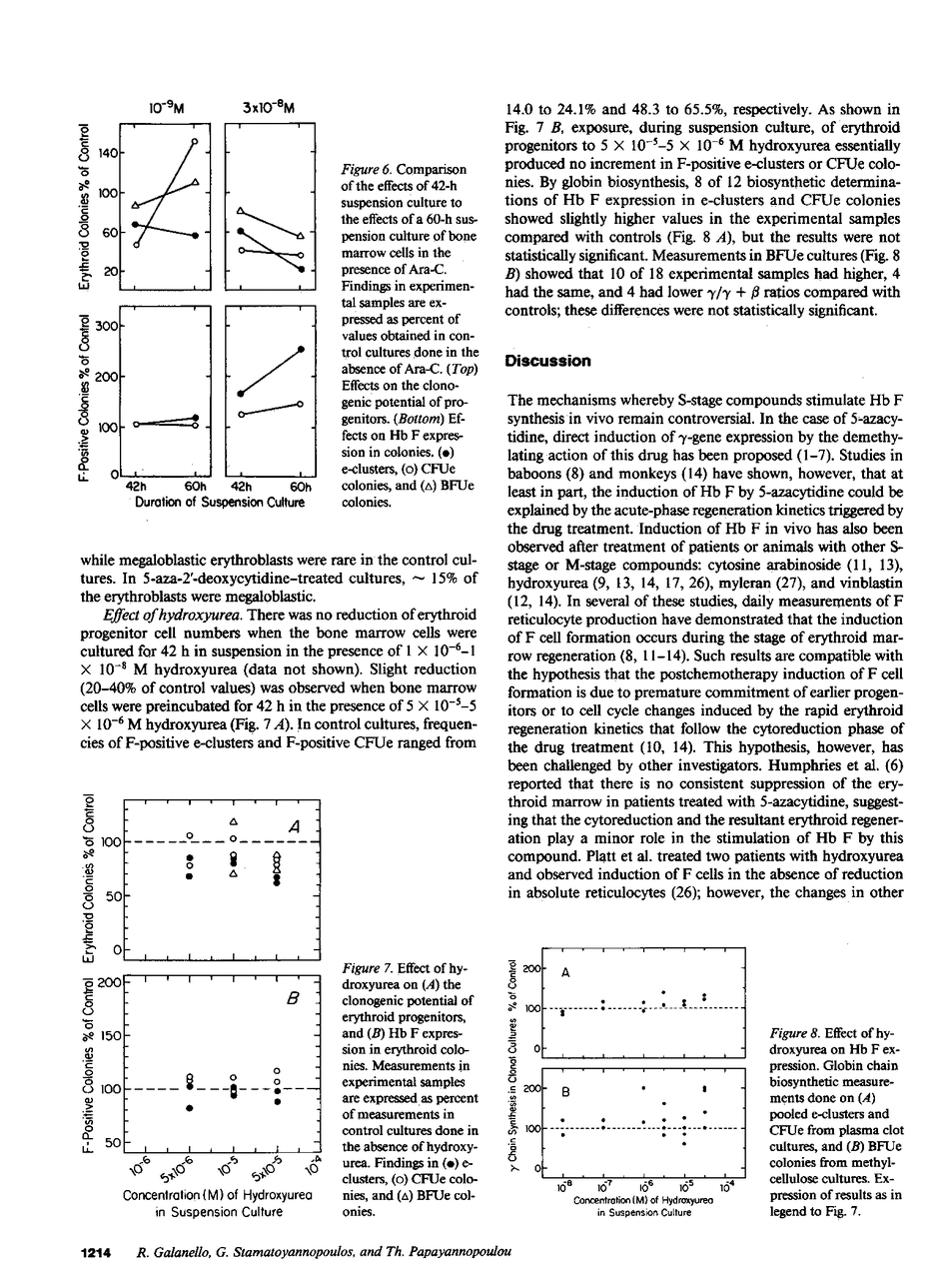Abstract
The in vitro effect of S-stage-specific drugs on the fetal hemoglobin (Hb F) potential of erythroid precursors and progenitors was tested by exposing bone marrow cells to 5-aza-2'-deoxycytidine, Ara-C, or hydroxyurea in suspension cultures and reculturing the cells in drug-free clonal cultures. Analysis of Hb F in the erythroblasts present at the end of suspension cultures and in the erythroid colonies formed from treated progenitors showed that 1 X 10(-9)-5 X 10(-8) M 5-aza-2'-deoxycytidine produced a concentration-related increase in the proportion of Hb F-positive erythroblasts, of Hb F-positive erythroid CFU (CFUe) colonies, and at the higher doses used, an increased Hb F expression in erythroid burst-forming unit (BFUe)-derived colonies. Preincubation of bone marrow cells with Ara-C produced significant megaloblastic changes by the end of the 2-d incubation and increased the proportion of Hb F-positive erythroblasts, CFUe colonies, and e-clusters, but BFUe-derived progeny was unaffected. Hydroxyurea failed to produce significant changes in Hb F at the range of concentrations used. The data raise the possibility of more than one mechanism underlying the stimulation of Hb F by S-stage drugs.
Authors
R Galanello, G Stamatoyannopoulos, T Papayannopoulou
Other pages:
| 1209 | 1210 | 1211 | 1212 | 1213 | 1214 | 1215 | 1216 |




